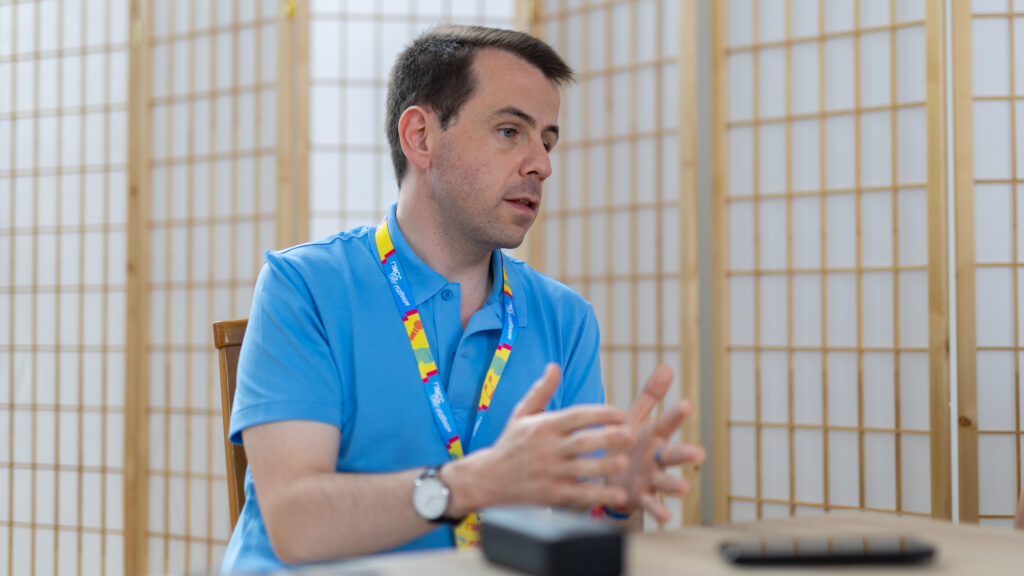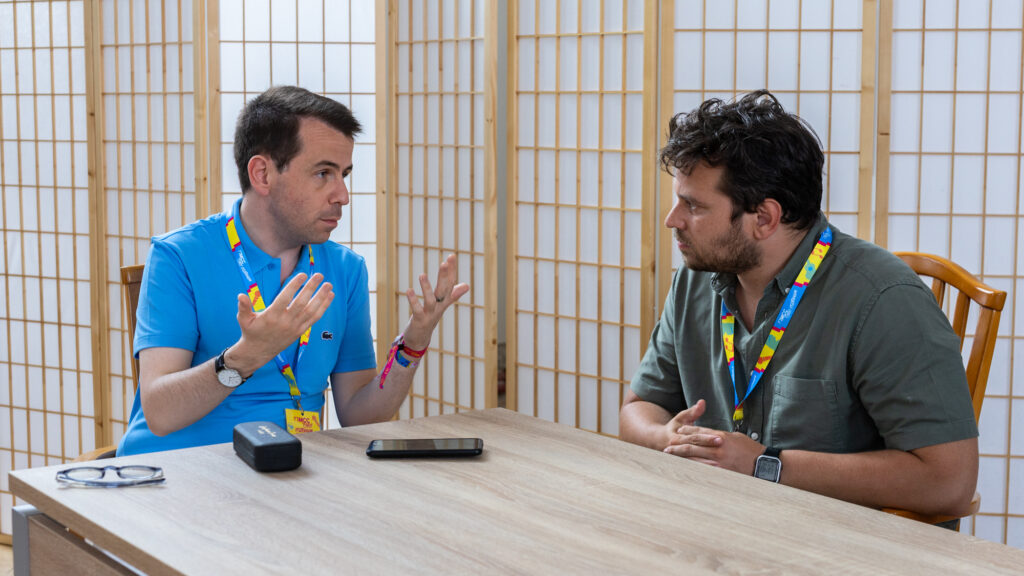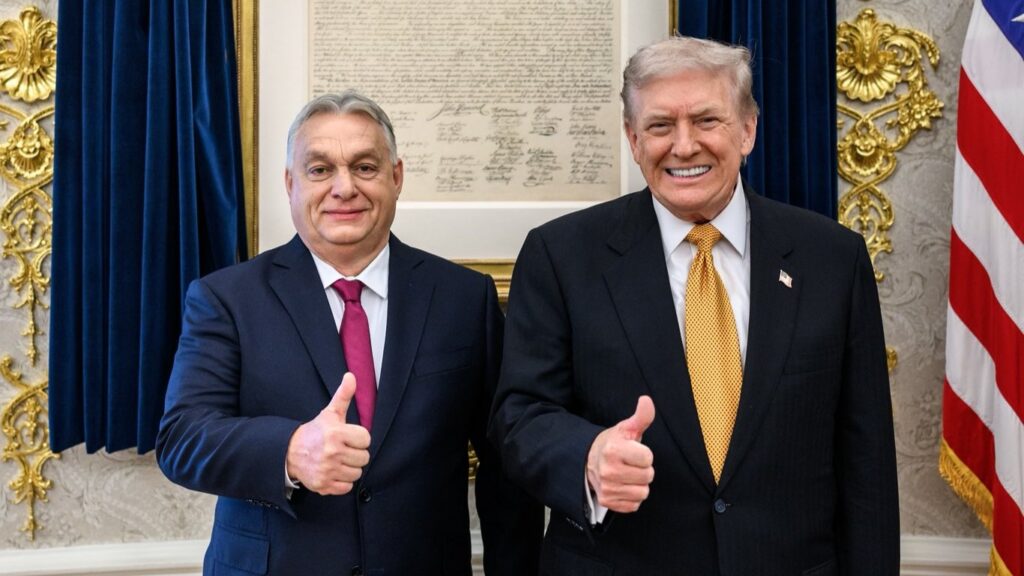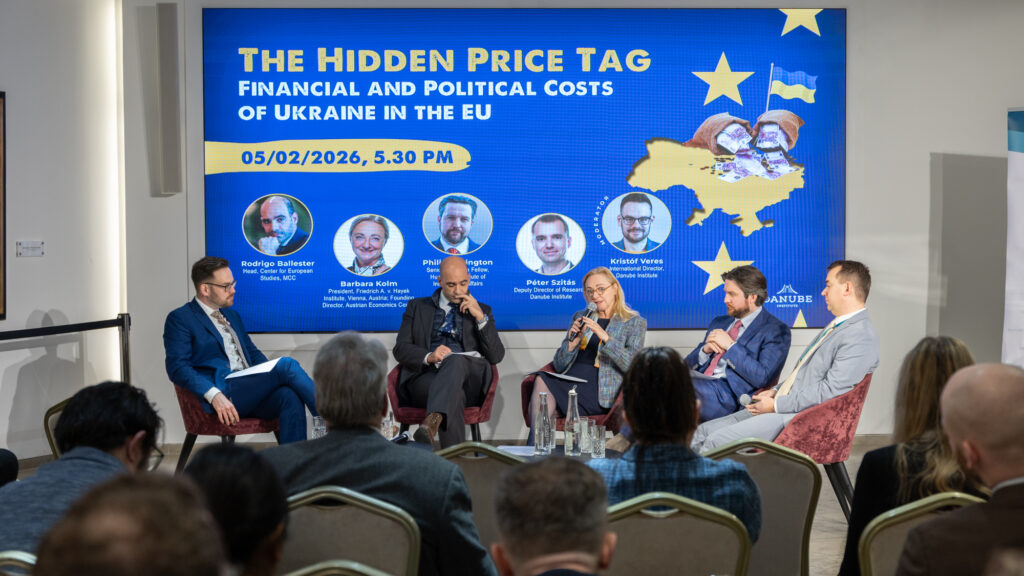Nicolas Monti is the director and co-founder of the Paris, France-based think tank Observatoire de l’immigration et de la démographie (OID), dedicated to studying migration and demographic issues. At MCC Feszt 2025, he kindly sat down with our website for an exclusive interview.
***
You just had a panel here at MCC Feszt about the rise of anti-migration parties across the world. Is President Trump and the Republican Party in the United States the best example of a successful anti-immigration platform?
Yeah, it is for sure. Well, at least you can see that immigration was among the top priorities of Donald Trump’s campaign. Now we’ll have to see what their actual immigration reforms are. What he has already managed to achieve so far is that the number of irregular crossings at the US–Mexico border has decreased dramatically ever since he was inaugurated. It’s like a 95-per-cent decrease. So, it shows that he managed to send a strong signal both to potential irregular migrants and to the smuggling gangs that the administration policy was changing, and that basically it was not worth taking the risk of crossing anymore.
Also, there was more of an upset in late 2023, when the very anti-immigration PVV party in the Netherlands won the plurality of seats. They formed a coalition government that has since been dismantled. What happened there in the Netherlands? Is that a setback for the anti-immigration movement there?
I would say that in the Netherlands, the immigration restrictionist agenda has spread into a large part of the political spectrum, so it does not just belong to one single party. Although, of course, Gert Wilders’s PVV campaigned a lot on immigration. The Dutch political system is very unstable by nature. You always have to do coalitions with a lot of different parties. But yet it seems like the Netherlands has joined for a duration—which is significant—a new European coalition of Member States which are committed to driving Brussels and the EU institutions towards a more realist approach to innovation. And it seems like the Netherlands is now on that track, whether the coalition is keeping up or not.
What about your own home country of France? Is Marine Le Pen even eligible to run for president in two years? And if she managed to get on the ballot, can she win?
Well, as far as the first question is concerned, we simply don’t know so far. She was condemned to not being able to run a few months ago, as you know, but she appealed that decision. The appeal ruling will be made next summer. So we will know only a few months before the presidential election what the actual setup of the election will look like. In the case that she would not be able to run, she would probably have her second in command, Jordan Bardella, run the presidential campaign.
But you can see that even beyond Rassemblement National, as you know, the trend towards immigration restrictionist policies is now a cross-party thing. You can see it in the mainstream centre-right, the Les Républicains party, with the current Home Affairs Minister in France, Bruno Retailleau, who is also the leader of Les Républicains, which used to be Sarkozy’s party and Chirac’s party. You can also start to feel it in some parts of President Macron’s own party, especially with young MPs who are more vocal about the need for territorial immigration control. What I’m pretty sure of is that whatever the setup is, immigration is going to be the number one issue in the upcoming presidential election. And it will be the decisive one for sure.

Does the French public see a difference between immigration from its former colonies versus just unaffiliated, usually Middle Eastern countries? Is there some kind of affection towards countries like Algeria or Senegal that have some level of French culture?
I wouldn’t say so because with some of these former French territories, the migration relationship is specifically bad, historically bad. You brought up the case of Algeria. The Algerian regime has a very outspoken anti-French discourse and is not willing to cooperate at all, even in the readmission of its own citizens who are on French soil without having any permit to do so. However, what’s true is that the specific dynamics of French migration are such that France now has the most African immigration in the whole of the European Union. Half of all immigrants living in France are from the African continent. A slight majority is from North Africa: Algeria, Morocco, Tunisia, etc. Yet since the year 2000, you can see that the number of sub-Saharan African migrants has doubled in France. The strongest migration trend from Africa is now from Sub-Saharan Africa because it’s also a part of Africa which is demographically growing. They have very high fertility rates, and they are a very young population.
So, France has these strong geographical specificities. And yet, some new immigration paths have brought in types of immigration that have not been seen much in France so far. I’m talking especially about the case of Afghan immigration. Because of asylum, now you’ve got something like 100,000 Afghans in France. This is a number that has been multiplied by 60 over 15 years. This is entirely a result of asylum. And of course, there’s no historical tie between Afghanistan and France, apart from the fact that France took part in the international coalition that was willing to bring down the Taliban regime. Although we can see this new shade of immigration, I wouldn’t say there is any favourable stance towards former colonies. What is true is that in the current state of French law, there still are some bilateral agreements between France and some of its former colonies, like with Algeria, for example, that make it easier for citizens of these countries to immigrate to France. But these bilateral agreements are getting more and more public scrutiny and criticism. There is a rising call for them to be revoked.
Was it Prime Minister Viktor Orbán of Hungary who started the pushback against these very liberal migration policies within the European Union around 2015?

Back in 2015, the political consensus was not what it is right now regarding immigration. It’s obvious that several Central and Eastern European Member States have played a significant part in making the first steps towards a new European approach to immigration. There was Hungary, of course, but also Poland at the time, the Czech Republic, Slovakia—all the countries of the Visegrád group. We can see now that the types of concerns that were expressed at the time by Poland, Hungary, and the Czechs, etc, are now quite mainstream among today’s Western European governments. If you listen to Italy’s government, the Dutch government, and to some extent the new German government, you can hear echoes of what was stated at the time by the Hungarians and the Poles.
‘Immigration is on the rise everywhere’
This is no coincidence. It is largely because Europe, and especially Western Europe, has experienced a decade of records in immigration. Over a decade, between 2014 and 2024, the EU has welcomed more than 8 million asylum seekers. So it’s a bit as if the EU has admitted a new Member State that would be entirely made up of asylum seekers. Even if we take a look at the regular, ‘old style’ way of immigration, the yearly number of first-time resident permits issued to people in the EU in 2023 was 130 per cent higher than it was ten years before. So, immigration is on the rise everywhere. It’s now a matter of electoral accountability and of political concern even within Western governments.
Related articles:







